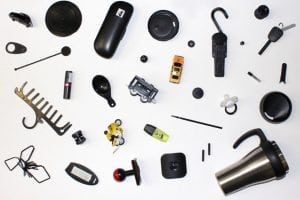
A sample of products containing bromine, as found by researchers.
A researcher has found black e-plastics are being recycled into a variety of household applications, despite still containing additives that he says could be hazardous.

A sample of products containing bromine, as found by researchers.
A researcher has found black e-plastics are being recycled into a variety of household applications, despite still containing additives that he says could be hazardous.
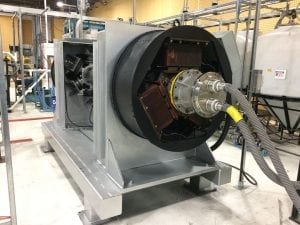
Ronin8’s sonic separation equipment.
Ronin8, which uses sonic technology to process low-grade circuit boards into a higher-value, smelter-ready material, is looking to scale up operations.
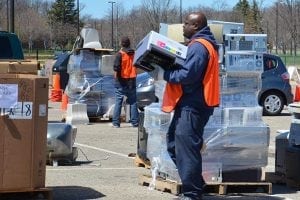 Researchers have compiled data on the global generation of used and end-of-life electronics, with an eye toward determining what the future e-scrap landscape will look like.
Researchers have compiled data on the global generation of used and end-of-life electronics, with an eye toward determining what the future e-scrap landscape will look like.
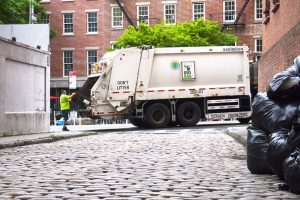 Curbside garbage and recycling audits show the amount of e-scrap improperly disposed by New York City households has dropped substantially in recent years.
Curbside garbage and recycling audits show the amount of e-scrap improperly disposed by New York City households has dropped substantially in recent years.

A two-year study has highlighted key details about e-scrap exports to Nigeria, including the different device types entering the country, methods used to ship them and countries of origin.
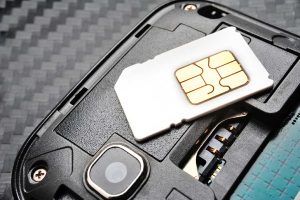 Research from a national laboratory shows that ultrasonic waves can be used to cheaply and effectively remove gold from scrap electronics.
Research from a national laboratory shows that ultrasonic waves can be used to cheaply and effectively remove gold from scrap electronics.
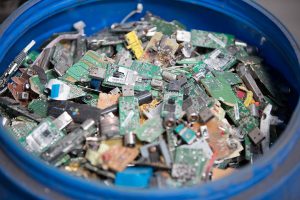 Researchers have looked at how the costs of e-scrap processing stack up against virgin mining, and their findings indicate recycling is more efficient for some key metals.
Researchers have looked at how the costs of e-scrap processing stack up against virgin mining, and their findings indicate recycling is more efficient for some key metals.
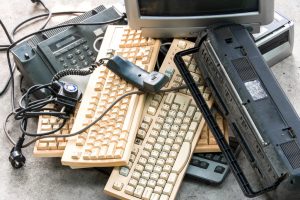 Research partially funded by a prominent IT asset disposition company led to the development of a non-toxic method for recycling e-plastics.
Research partially funded by a prominent IT asset disposition company led to the development of a non-toxic method for recycling e-plastics.
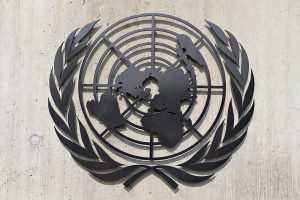 A handful of United Nations entities have announced their collaboration to improve e-scrap management.
A handful of United Nations entities have announced their collaboration to improve e-scrap management.

A byproduct from corn harvesting is a key component in a new method of e-scrap leaching.
Researchers on two continents have recently made breakthroughs on the use of leaching techniques to recover critical materials from e-scrap.

